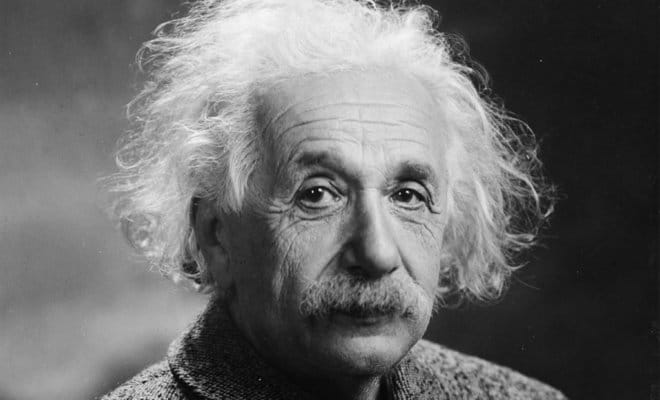Life
A Hindu Nationalist Claimed That Test-tube Babies Were Invented Thousands of Years Ago

Albert Einstein
Photo: Wikipedia
In a strongly worded blog post, K. VijayRaghavan, the principal scientific adviser to the Indian government, called the controversial comments made at the conference "completely untenable."
Isaac Newton did not understand gravity. Albert Einstein misled the world. And India pioneered the science behind test-tube babies thousands of years ago.
These were some of the wilder theories on offer at a major Indian science conference held this weekend and inaugurated by Prime Minister Narendra Modi.
To open the Indian Science Conference, Modi spoke of India’s ambition to send three people to space by 2022.
But the lecture that made the most headlines was an attempt to link ancient Indian mythology to present-day science, the latest incident in which Hindu nationalists have cited age-old religious texts as proof of prior scientific advances.
Gollapalli Nageswara Rao, vice chancellor of Andhra University, delivered an address in which he referred to a tale in the Sanskrit epic the Mahabharata in which one woman bears 100 children.
This was possible thanks to stem-cell technology and in vitro fertilization, said Rao. “Even today, many people don’t understand what stem cell is,” he said. “But thousands of years ago we had this technology.”
In another session, Kannan Jegathala Krishnan, who describes himself as a senior research scientist, bragged about bettering the claims of Newton and Einstein.
Scientists were not amused: They organized protests in seven Indian cities Sunday and Monday, where they held signs reading “don’t mix mythology with science” and urging against making India a “laughingstock.”
“It is completely outrageous for any scientific meeting to have pseudoscientific nonsense that is not based on testable evidence,” said Venki Ramakrishnan, a Nobel Prize-winning biologist. The event has now become a “large circus.”
In a strongly worded blog post, K. VijayRaghavan, the principal scientific adviser to the Indian government, called the controversial comments made at the conference “completely untenable.”
The remarks by Rao, the vice-chancellor, reflect a broader Hindu nationalist push to evoke cultural pride in ancient India. One aspect of that enterprise involves citing religious epics as potential evidence of civilizational advances.
In 2014, Modi said that the elephant face of the Hindu god Lord Ganesha was evidence of the existence of plastic surgery in India in ancient times. Members of his ruling Bharatiya Janata Party (BJP) have also made similarly unscientific claims. For instance, they have asserted that algebra and the Pythagorean theorem originated in India and questioned Charles Darwin’s theory of evolution as it is not mentioned by ancient Indians.
While politicians are often mocked by the media for such comments, dismissing such remarks is more difficult when they are made at a scientific event with official backing. The theme for this year’s Indian Science Congress was “Future India,” and included events attended by schoolchildren.
Breakthrough Science Society, an organization that promotes scientific thought, previously published a book sifting reality from myths about science in ancient India and organized the protests in response to the comments.
“It is important to note that no technological accomplishment can be made without the relevant scientific theoretical foundation,” the group said in a statement. “There is no evidence for the existence of these underlying pillars of scientific knowledge in ancient India.”
Rajani K.S., a former biology professor who serves as secretary of the BSS called the controversial claims made at the conference “illogical” and without proof. “This will do a lot of disservice to science in India,” she said.
(c) 2019, The Washington Post




You must be logged in to post a comment Login